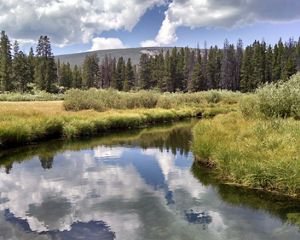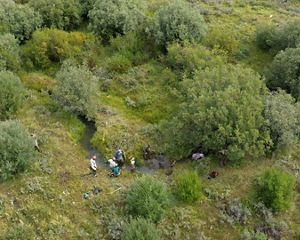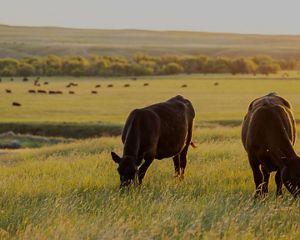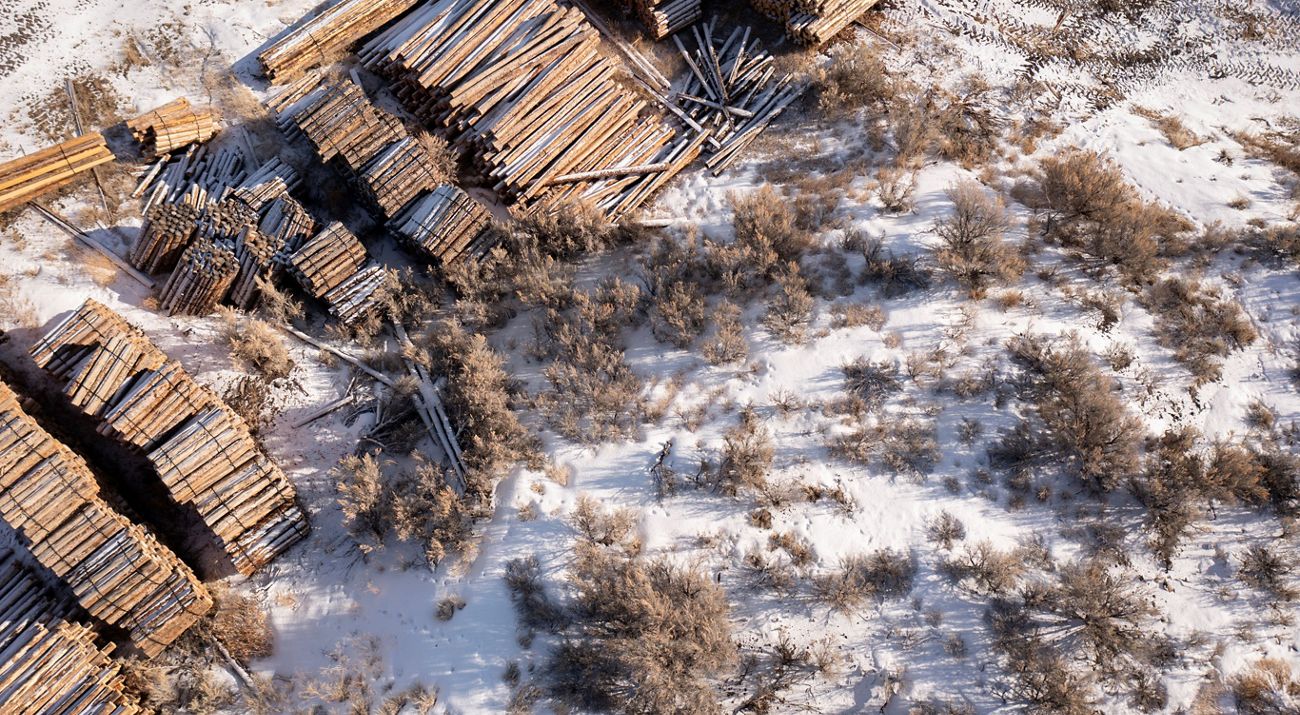
Creative Collaboration in Sagebrush Restoration
Trees from conservation work create rural jobs.
At a small sawmill outside of Dillon, Paul Rust operates with the unharried skill of a man who has worked with wood for 60 years. His hand-built machinery processes trees from the local mountains, transforming the nicer specimens into beams and flooring for homes while turning scruffier pieces into firewood and logs for homebuilding. Rust’s mill was once a full-time business, accepting smaller, more gnarled trees that big sawmills did not want. These days, the semi-retired woodsman is lending his experience to TNC’s efforts to keep forests from expanding into sagebrush habitat. He has restarted his mill to help process logs from the conservation effort.
“I have watched this particular habitat change from grassland to what you see here today,” says Rust, referring to hillsides now dotted with evergreen trees. Frequent grass fires once killed young trees growing outside the forest’s edges in these foothills. But decades of fire suppression allowed the forest to expand, shading out sagebrush and impacting wildlife such as sage-grouse and pronghorn that depend on it.
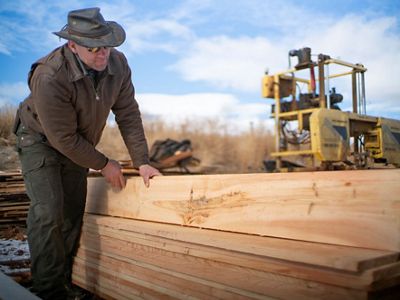
For years, TNC has hired local contractors to restore the former forest boundaries by cutting trees. Yet our collaboration with mill owners like Rust is new, as are partnerships with others in the wood products industry, like Mark Stosich, who runs a fence-building business in nearby Lima. Rust and Stosich are helping TNC demonstrate that the smaller trees that restoration work generates can support rural jobs. If mills can receive a steady supply of reasonably priced logs to keep their operations running, they can, in turn, offer stable employment. These jobs are a game-changer in the rural West, where people have historically had to make the hard choice to leave their families for opportunities elsewhere when work becomes scarce.
Quote: Paul Rust
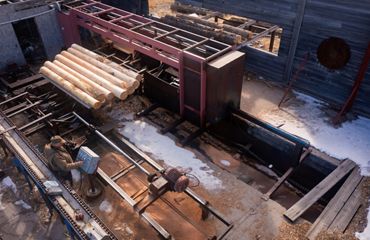
I have seen a lot of these young people in our community that are kind of lost. Our communities desperately need middle-class jobs so these people can have pride and dignity, and they can provide for their family.
“I have seen a lot of these young people in our community that are kind of lost,” says Rust. “Our communities desperately need middle-class jobs so these people can have pride and dignity, and they can provide for their family.”
Stosich’s fence-making business is a case in point: His shop employs up to a dozen people, making it the second-largest employer in Lima, after the school. “One thing that I’ve learned in the course of my small business is to take responsibility for certain things. I feel that about my wife and my family, and I feel that about my assets. But I really feel that about our lands. If we don’t take care of and manage them for our next generations, they won’t have the freedoms that we have to be able to utilize them the way we have."
Southwest Montana Sagebrush Partnership
The Southwest Montana Sagebrush Partnership is a network of partners—including federal and state land managers, nonprofits, local businesses and landowners—dedicated to the responsible stewardship of southwestern Montana's sagebrush sea. Learn more about this important work.
